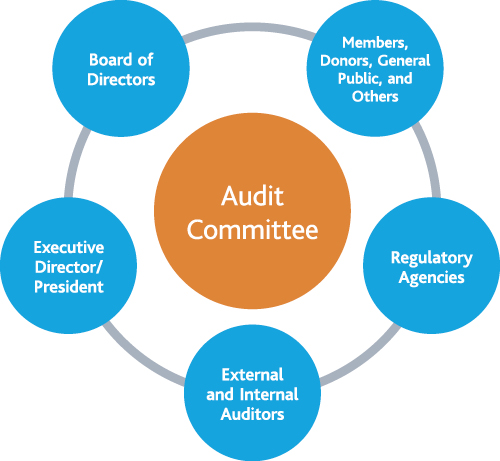Who Make the Best Audit Committee Members?
The best audit committees are those that set the appropriate tone at the top where the focus is on ensuring the organization acts in accordance with the best interests of its stakeholders. Fundamentally, this can only occur in environments where in-depth knowledge, integrity and an unbiased perspective pervade and are brought to bear at the board and audit committee, senior management and leadership levels. These members not only bring a wealth of industry, general business and financial knowledge and experience to the table, but also can very effectively apply such knowledge and experience to the organization’s specific circumstances. This entails knowing the organization and its risks, which is fostered through regular involvement and communications with management and the internal and external auditors. The best audit committee members demonstrate a high level of involvement and engage in frequent communications, ensuring that a two-way constructive dialogue occurs at all times whereby appropriate information-and knowledge-sharing takes place between all parties involved.
The Audit Committee's Relationships

Furthermore, it is imperative that the expectations of the audit committee as a governing body are understood and actions are appropriately carried out. For example, the best audit committees will take an active role in identifying financial statement areas where, given the particular circumstances, the committee may require incremental procedures to be performed by the internal or external auditors. The audit committee is also highly involved in the organization’s financial reports, ensuring that presentation and disclosure matters of significance are handled fairly and transparently. Such an audit committee realizes its role in initiating communications, creating meeting agendas and following up on the results of actions taken. We will discuss these and other best practices in more detail throughout this publication.
A best practice for audit committees is to ensure that the audit committee members are independent of management in order to be truly objective in the discharge of their duties. It is not always easy to resist strong management, or tell them what they don’t want to hear. It is particularly difficult to do this without an independent state of mind. The audit committee independence should be in fact, as well as in appearance. The audit committee, to be truly effective, must be able to resist any attempt by management to compromise financial reporting.
For example, the following relationships are considered to impair independence:
- An audit committee member who is or has been an officer or employee of the organization during the past three years or has otherwise accepted sizable compensation from the organization.
- A member who is an immediate family member of such a person as described above.
- A member who has a direct business relationship with the organization (e.g., a consultant) if this relationship occurred within the past three years.
Currently, the IRS Form 990 includes a question in Section XII that asks whether the organization has a committee that assumes responsibility for oversight of the audit of financial statements and selection of an independent accountant. While not required, this is considered a best practice and the Form 990 is a public document so if an organization is forced to answer “no,” this may raise concern from stakeholders.
In addition, certain states have legal requirements that require an organization to have an audit committee. Certain states or other regulators also require that certain members of the audit committee can not also be members of the finance committee. For example, the State of California requires that no more than half of an organization’s audit committee members may also be members of the finance committee. This requirement applies not only to organizations located in the state of California, but to all organizations that solicit charitable donations in the state. Some states require that the chair of the finance committee not be a member of the audit committee. Audit committee members should read and understand any such laws and regulations in all states where their organization does business. Although states may have varying regulations they are all designed to promote audit committee independence.
Organizations often develop Conflict of Interest policies or Statements of Independence that must be signed annually by members of not only the audit committee, but the board and management to ensure compliance with the definitions of independence, ethics and integrity that they have defined in their policies and procedures.
BDO Insight
We believe that the guidance on independence for auditors contained in Auditing Standards (AU) Section 220 Independence can be applied to audit committee members as well. To paraphrase, independence does not imply an attitude of a prosecutor but rather a judicial impartiality that recognizes an obligation for fairness not only to management but also to members, donors, creditors, the general public and those who may otherwise rely on the financial statements.
Refer to the WHAT section for specific audit committee responsibilities with respect to continued independence.
UP NEXT: Who Can Serve as a Financial Expert on the Audit Committee?
GO BACK: Effective Audit Committee Guide
SHARE